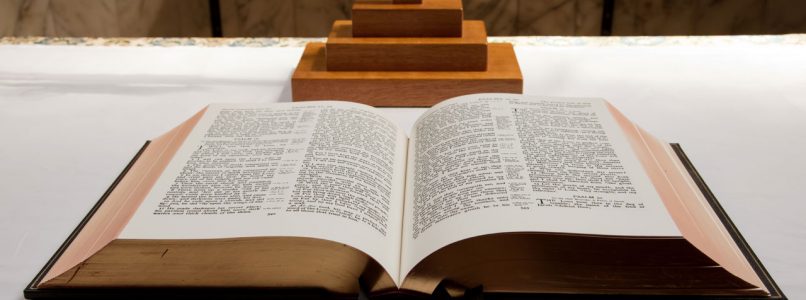All doctrine should be testable doctrine – with this one idea we can create an axiomatic faith.
What is an axiomatic faith?
Axiomatic means something that is self-evidently true. So a faith (or more accurately a doctrine) is one which by its own evidence is true.
I am going to add in one external axiom (unquestionable truth) that something can only be true if it is not false. I’ve talked before about the idea of agnosis – that we cannot know everything. This is an extension of that. Each doctrinal idea can be considered true (sound doctrine) only in the absence of evidence against it.
Think of axiomatic faith as the result of a court hearing. A single idea fails if the prosecution can provide reasonable doubt. Where there are competing doctrinal ideas only those ideas that are likely to be true on the balance of probabilities shall be taken as true. In other words, we seek a doctrine that is the least likely to be false or at least fatally flawed.
A scriptural basis for testing doctrines
In 1 John 4:1 we are urged to diligently test everything so as to avoid false prophets. 2 Peter 2:1 tells us to expect not just false prophets but false teachers too. Likewise, 1 Thessalonians 5:20-21 says to test all prophets. 1 Corinthians 14:29 says that a few should speak and everyone else must weigh what is said.
Acts 17:11 holds those that check the scriptures to see if what they were told was true in very high regard. In a similar way, 2 Timothy 4:3-4 warns against believing things simply because we wish them to be true.
Tested as with fire
Each doctrine can be exposed to a number of testing fires. Each designed to ask the same question – is this a true (and sound) doctrine?
The fire of scripture
Using Axiom Zero – that scripture is good for establishing doctrine – the doctrine to be accepted must be the one with the best fit with scripture. That is to say, doctrine with the least scripture that could potentially contradict it.
One approach to applying this fire is to list all scriptural passages that address the topic of doctrine and then assess if that passage on its own (but within context) supports, is indifferent to, or disputes the doctrine. The doctrine with the best support and least conflict passes that test.
The fire of reason
This is an idea I first expressed when I introduced the Axioms of Faith. Having passed the test of being rooted strongly in scripture a doctrine must also be examined to see if it is reasonable.
This test acts as a check against concluding wildly irrational and foolish notions because they can be deduced from a specific reading of scripture. Established axioms can, therefore, be used as a reasoned test of doctrine.
The fire of existing doctrine
Doctrine can and perhaps should be tested against other doctrines. A doctrine that is internally consistent but at odds with other dearly held doctrines highlights only that one or more doctrines is in error.
Therefore, should a doctrine fail in this comparison, both doctrines must be re-examined. This cycle must continue until such time that all existing doctrine are consistent with each other.
Other reasonable tests
Other tests of doctrine, such as listed here, might include a comparison to the teachings of the early church, spiritual discernment, fruit, prayer, the origin of doctrine, relevance to spiritual growth, and comparison to long-standing traditions and practices of the church.
The ideal doctrine would pass through all these tests unscathed. At the very least, it should pass most and bring the remainder into reasoned testing.





